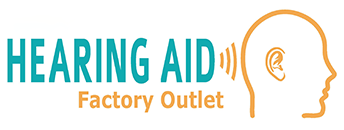The most recent statistics say that there are over 40 MILLION individuals in the USA with some degree of hearing loss. Sadly, less than 25% of those have purchased hearing aids. One thing is certain; when you have major hearing loss it affects both the quality of your life and your relationships.
Let’s look first at what are considered to be the major causes of hearing loss. Obviously, normal aging is the most common cause. Let’s face it, as we all get older, many things change, hearing is but one of them. Research says that one out of three; between the age of 65 and 74 have some degree of
hearing loss. After age 75, make that one out of two.
So let’s briefly cover the other things that we KNOW cause hearing loss. First, and probably foremost, after aging, is noise. Almost 50% of all carpenters have hearing loss, for example. Certainly many of us who were in the military have a loss, but so do those who worked in such industries as mining and manufacturing. Did you listen to loud music growing up? Add that to the list.
Next on our list are medications. Antibiotics, chemotherapy drugs, or even aspirin and drugs used to treat ED are known villains. Often times these same drugs also affect balance.
Many serious illnesses have also been linked to hearing loss. Heart disease, high blood pressure, and diabetes appear to be the leaders. Does everyone who has one of these diseases also have hearing loss? Of course not, but many do.
While the list of possible causes is long, several others deserve mention here. Sudden hearing loss, defined as a loss of at least 30 decibels, and usually affecting only one ear; trauma, such as a skull fracture; a punctured eardrum; and finally, infections of the ear; and ear wax – although ear wax usually only “reduces” acuity around 5 decibels.
One of the major problems with hearing loss is that it usually develops over a long period of time. As a result, the person suffering from that loss often thinks that people are merely mumbling, that their spouse simply needs to speak up, that the telephone is simply an inferior device, and that all televisions are not turned up adequately. Sound familiar? Admit it, sure it does.
Most hearing loss occurs in the high frequencies and those frequencies are found in children’s and most female voices. Those are the frequencies where we find the consonants such as S, P, TH and CH, and SH. If you have hearing loss, you probably may have trouble telling the difference between peace and peach, or cheese and chief.
Most individuals with a hearing loss have varying degrees of difficulty hearing in noisy environments, trouble following more than one conversation at a time, misunderstanding and responding inappropriately, complain that the TV is not loud enough, ask people to repeat themselves, and often have tinnitus (those ringing, roaring, or hissing sounds).
Most textbooks categorize hearing loss into one of four levels and most people seem to progress through these levels. The levels are mild, moderate, severe, and profound.
MILD
With only a mild loss, you probably do fine with one on one conversation unless there is a lot of background noise. If there is, you usually have some trouble understanding some of the words. Usually you blame that on the fact that the person you are talking to simply is not talking loud enough, or that they mumble.
MODERATE
When your hearing loss progresses to the moderate level, you may find yourself asking people to repeat themselves, both face to face and on the telephone.
SEVERE
A severe hearing loss makes it almost impossible to understand a normal conversation. Frustration is often seen here. Many times that escalates to anger or the appearance of anger.
PROFOUND
Profound hearing loss is often referred to as a loss where the person “can’t hear thunder”. That may be an exaggeration but the person really cannot hear others speaking unless they almost shout. The ability to understand speech is severely limited. At this stage of loss, isolation is often seen. The hearing impaired person
chooses not to go to social activities because of their inability to hear well enough to participate in them. Unfortunately, those individuals with a profound loss usually do not benefit from hearing aids as much as those with a lesser degree of loss. We often say they have waited too long to get help.
(404) 786-64165900 Sugarloaf Parkway Lawrenceville, GA 30043Monday - Saturday 10am-9pm Sunday 12pm - 6pm
Hearing Loss
You are here:
- Home
- Hearing Loss
